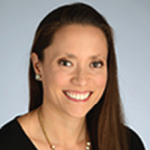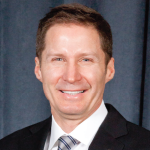SD: Young physicians need to continue to learn to say no nicely and, in some cases, disappoint their mentors through pursuits that appeal to their own self-
Explore This Issue
July 2018interest and not necessarily their external expectations. This might mean reallocating more time in your week for your family/hobbies/sleep instead of your career, or vice versa; everyone should pursue their own formula and recipe for happiness, which will be unique. In the end, success must be a personal reflection. Aiming to meet an external definition of success is likely doomed for failure. For me, as I’ve grown older, success becomes less defined by traditional norms, such as CV development, wealth accumulation, professional awards, leadership roles, and recognition, etc., and more so by seeing my children work hard and accomplish a good grade in school or do well in some sporting event, seeing my patients get healthier regardless of where the medical intervention came from, and seeing specific areas where a devotion to life-long learning creates a positive impact in my daily life.
Junior Faculty and Senior Faculty

Dr. Villwock

Dr. Smith
Mentee: Jennifer Villwock, MD, is assistant professor of otolaryngology–head and neck surgery in the division of rhinology and skull base surgery at University of Kansas Medical Center in Kansas City.
Mentor: Tim Smith, MD, MPH, is director of the Oregon Sinus Center at the Oregon Health and Sciences University in Portland.
What is an example of a “little thing” in your relationship with your mentor that has made a lasting impact on you?
JV: There are multiple “little things” that come to mind. They all have a common theme of integrity in action. When I was interviewing for fellowship with Alex Chiu, MD, it was explained to me that he would not be at the interview dinner as he had family commitments. We had talked earlier in the day about the importance of endeavoring toward a healthy level of work-life integration and how that may change longitudinally over the course of a career. It was meaningful to see his actions reflect that conversation; it also helped me give myself permission to set similar priorities for myself.
TS: After reading Jennifer’s response, I realize it took me many years to find the balance (an ongoing struggle for me) Dr. Chiu demonstrated in his actions. It is important to realize that the mentor is a flawed individual upon whom many positive projections have been cast by mentees. While interacting with our mentees, we need to embrace our flaws and shine light on them. These flaws are opportunities for our mentees to succeed where we have failed. I’ve learned to look at my mentee as a whole person, not just at their professional ambitions and career. My important mentors showed me that authenticity while mentoring is critical.